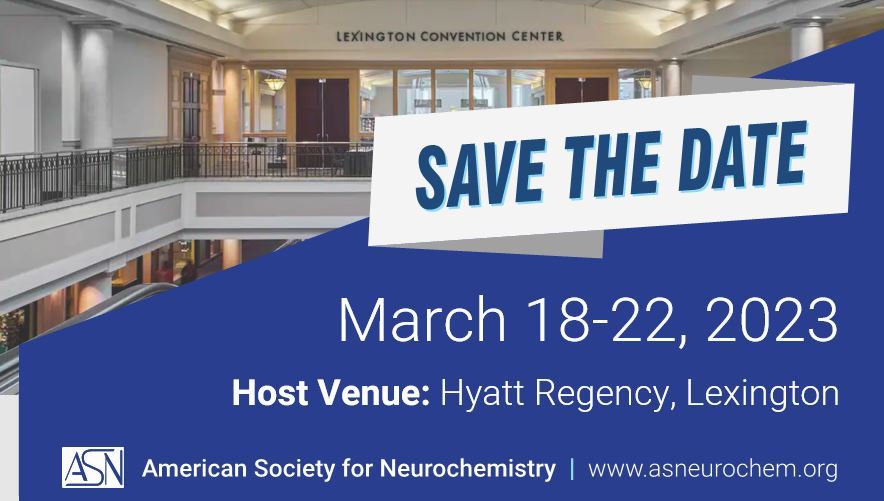2023 Candidates Standing For ElectionThe American Society for Neurochemistry is led by a group of visionary, passionate and committed members that serve on the ASN Council for a period of two or more years. Below you will find more information about those standing for election.
PRESIDENT-ELECT (1 position)
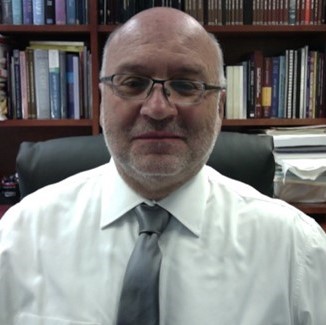
Arturo Ortega, B.Sc., M.Sc., Ph.D.
I was born in Mexico City, earned a B.Sc. in Biochemistry, a M.Sc. diploma in Physiology and a PhD degree in Neurobiology from The Weizmann Institute of Science in Israel. In 1991, I became a Faculty member of Cinvestav, the top research center in Mexico, where I hold the rank of Professor. I joined the American Society for Neurochemistry in 2012. Since then, I have served as a co-Chair of the Local Committee of the 2013 ISN/ASN Joint meeting, Chair of the Young Latin American Scholars Committee (2016-2018) and Chair of the Program Committee (2021). I have also served as Council Member in two different periods (2014-2016 and 2022-2024). As President-Elect I plan to work side by side with the President in order to invite the various Neuroscience-relates societies in the Americas to join ASN, so that as President, will make a major effort to hold at least one ASN meeting in Latin America with a record participation. Finally, as
Past-President will work to consolidate the Pan-American character of ASN.
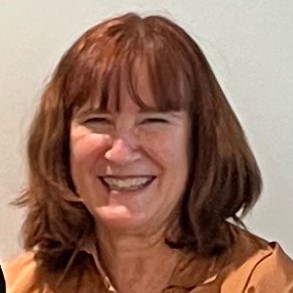
Wilma Friedman, Ph.D.
Wilma Friedman, Ph.D. received her doctorate from The Rockefeller University in 1986, and subsequently did her postdoctoral work at the Karolinska Institute in Stockholm, Sweden. She has held faculty positions at Robert Wood Johnson Medical School and Columbia University College of Physicians and Surgeons before moving to Rutgers University, where she has been since 2001, and where she is currently Professor and Chair of the Department of Biological Sciences. Dr. Friedman’s research focuses on the role of neurotrophic factors in regulating neuronal and glial development in the brain, and in regulating neuronal death after brain injury. Dr. Friedman has organized and chaired two Gordon conferences, including the second Gordon conference on Glial Biology in 2005. She joined the American Society for Neurochemistry in 2010. She was Program Chair for the annual meeting in 2015, and served on the Program committee in 2016. She has served on the editorial board of the society’s journal, ASN Neuro, since 2010, and served as a member of ASN Council from 2017-2021. Dr. Friedman has served on numerous NIH study sections, and she also currently sits on the New Jersey Governor’s Council for the Medical Research and Treatment of Autism, and the Neuroscience Training Committee of the Society for Neuroscience.
SECRETARY-ELECT (1 position)
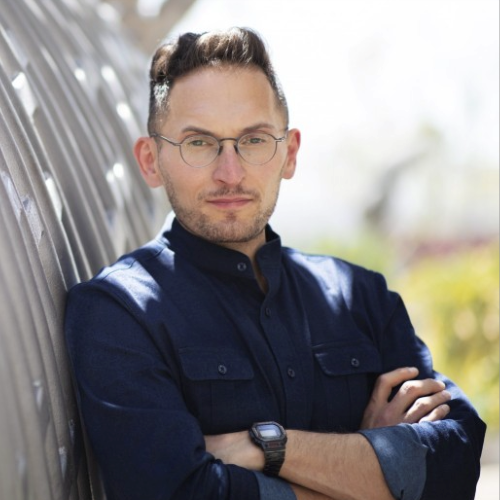 Joshua Burda, Ph.D. Joshua Burda, Ph.D.
Josh Burda, PhD received his doctorate in Molecular Neuroscience from the Mayo Clinic in 2013 for his work with Isobel Scarisbrick and trained as a postdoc at UCLA with Michael Sofroniew. In 2018, Josh received a NIH Pathway to Independence Award (K99/R00) from NINDS and is currently an Assistant Professor in the Center for Neural Science and Medicine in the Department of Biomedical Sciences at Cedars Sinai Medical Center, Los Angeles. Josh’s research focuses on dissecting glia-glia and glia-neuron interactions underlying neural tissue remodelling, inflammation, repair and plasticity after CNS injury and in disease. He has published extensively on these topics, with articles in Nature, Neuron, PNAS and JCI.
Josh has been a highly active member of ASN for nearly 8 years. In 2015, he joined the American Society for Neurochemistry and received the esteemed Marian Kies Memorial Award. Since then, Josh has served in a variety of leadership roles and has made a number of important contributions to the society. In 2016, he organized and Chaired a symposium on ‘Functions of Astrogliosis’ at the annual Society meeting and helped found the ASN Young Investigator Advisory Committee (YIAC), which seeks to encourage and support the next generation of neurochemistry investigators through active Society involvement. Josh served as inaugural Chair of YIAC and worked to facilitate its establishment as a standing committee of the Society. As YIAC Chair, Josh worked with Dr. Haley Titus and other YIAC members to organize trainee professional development workshops at the 2017-2019 ASN annual meetings. By encouraging and supporting trainee-level scientist involvement, Josh and the YIAC have contributed to the sustainability of the Society by fostering recruitment and preservation of young investigator membership. In 2019, Josh was elected to serve a three year term on ASN Council.
Josh has been nominated to run for the office of ASN Secretary-Elect for the 2024-2025 term prior to assuming the office of Secretary for the 2025-2027 term.
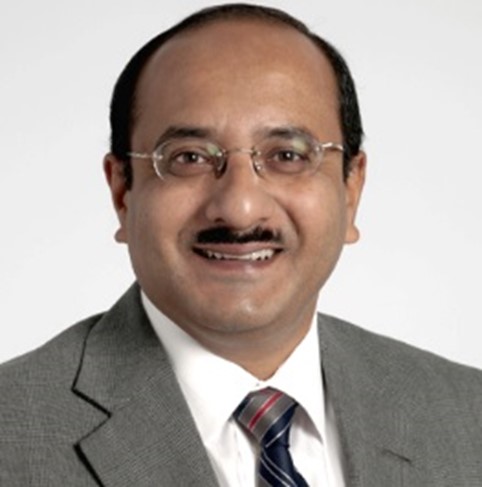 Ranjan Dutta Ranjan Dutta
My name is Ranjan Dutta and I am an Associate Professor in the Department of Neurosciences, Lerner Research Institute, Cleveland Clinic, with a joint appointment at the Cleveland Clinic Lerner College of Medicine. As we all know, multiple sclerosis (MS) is an inflammatory demyelinating disease of the central nervous system and is the major cause of atraumatic neurological disability in young adults in North America and Europe. Although existing therapeutic options are helpful during the initial relapse-remitting phase of MS, there are few available options for the progressive phase of the disease. The main research goals of our laboratory are directed towards understanding molecular changes underlying neuronal loss and remyelination failure in progressive MS patients. To increase our understanding of the processes underlying progressive disability, we use postmortem tissues derived from MS brains, animal models of MS, and in vitro systems to compare and contrast genetic and epigenetic components associated with cellular responses to demyelination, remyelination, and axonal and neuronal loss in MS. I have been a standing member of ASN since 2005, and I have attended most of the yearly meetings. During my journey as an ASN member from Postdoctoral Fellow to an Associate Professor, I have been a Young Investigator Travel Award recipient, an invited speaker, served as part of Poster and Abstract Selection Committees, and a Scientific Program Committee member. This year, I am also honored to be selected as part of the ASN Diversity and Inclusion Committee (DIC) through 2023-2027.
TREASURER-ELECT (1 position)
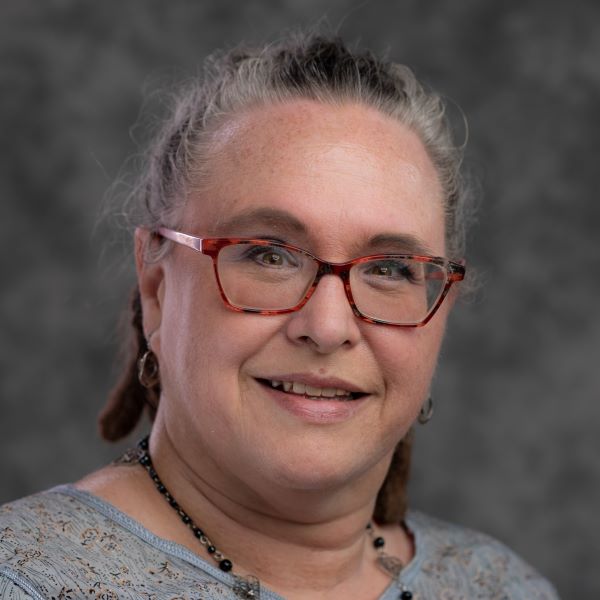
DiAnna Hynds, Ph.D.
DiAnna Hynds is honored to be nominated for the position of Treasurer-Elect of the American Society for Neurochemistry (ASN), especially since the first national meeting where she presented a poster of her graduate research was the annual ASN meeting. She is currently a Cornaro Professor of Biology at Texas Woman’s University (TWU) and affiliated with the Woodcock Institute for the Advancement of Neurocognitive Research and Applied Practice. She earned her Ph.D. in Pathology from the Ohio State University College of Medicine and engaged in post-doctoral training in Neurobiology at the University of Kentucky Medical Center. Throughout her career, her research has centered on the molecular mechanisms regulating axon growth and guidance, a topic aligned with the ASN theme of Building the Nervous System and focused in developing nanomaterial delivery systems to treat neurotraumatic and neurodegenerative disorders. DiAnna has abundant leadership experience within and beyond her institution. She has held administrative positions as the interim Chair of Biology and the Graduate Studies Director. She is currently serving TWU as the Associate Direct for Special Projects in the School of the Sciences. She has served as chair of several university committees, including as the Speaker of the TWU Faculty Senate, Graduate Council Research Committee, and Institutional Animal Care and Use Committee, and she has served as program director or co-director for National Science Foundation and National Institute of Health funded training programs. In the North Texas region, DiAnna served a councilor for the Arlington/Fort Worth Chapter of the Society for Neuroscience, and has participated in organizing several regional symposia through serving on multiple steering committees. She has also held offices in Women in Neurotrauma Research (now the Training, Education, and Mentoring Committee) and chaired several academic sections for the Annual Biomedical Research Conference for Minority Students, and is an Associate Editor for Nutritional Neuroscience. She is a long time member of ASN (since 1995) and has served on the Marian Kies Award Committee (2010-2016) and ASN Council (2013-2017). She is on the Education and Public Policy Committee (2016-present) where she is currently serving as Chair (2021-2025). She is also a Senior Editor for ASN Neuro (since 2021). Being based in a Hispanic-Serving Institution, DiAnna looks forward to continuing to bring a historical and student-focused perspective to ASN.
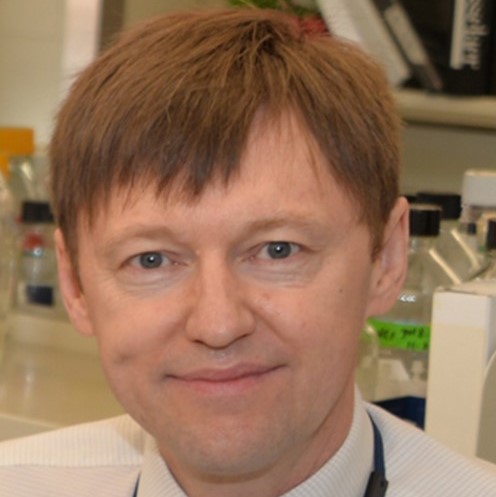 Alexander A. Mongin, Ph.D.
I am running for a seat on the ASN Council for the 2023-2027 term. The American Society for Neurochemistry has been a big part of my professional life for the past 25 years. I attended my first ASN meeting in 1997 (ISN/ASN in Boston, MA) and immediately fell in love with the inclusive and collegial nature of this group. Since then, I have made it a point to participate in a majority of the annual meetings, organized several symposia, served on the Program Committee for ASN-2011, and now act as a member of the editorial board for ASN Neuro (since 2020). The NIH-sponsored work of my laboratory is focused on the physiological and pathological roles of brain glial cells, astrocytes and microglia. These efforts are supported through many collaborations initiated at ASN meetings. I cherish the friendly atmosphere that I have encountered at my first ASN meeting and hope to help with perpetuating it for our “next gen”. If elected, I will work keenly to support the long-term growth of the ASN and to increase our base among trainees and young investigators. Inclusivity and a significant focus on young scientists are critical to the prosperity of the ASN but also to assure the sustainability of the field of neurochemistry in the Americas and (through cooperation with ISN) worldwide.
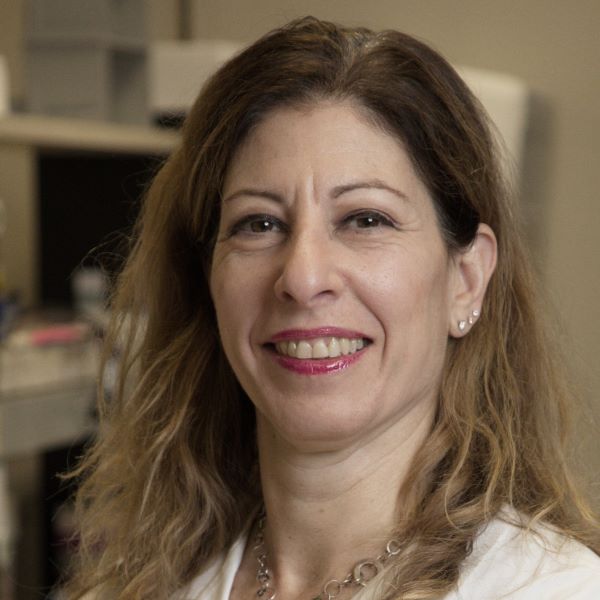 Bonnie Firestein
I am excited to have been nominated for the position of ASN councilor. Although I have only been a member of ASN for one year, I am committed to taking an active role in promoting and fostering the ASN mission. I am a Professor in the Department of Cell Biology and Neuroscience at Rutgers University. My research focuses on the role of guanine metabolism in neuronal development and in recovery after injury. My lab identified the postsynaptic density protein-95 (PSD-95) interactor cypin (cytosolic PSD-95 interactor; aka guanine deaminase or GDA), a purine metabolic enzyme, as a core regulator of neuronal development that directly interacts with the cytoskeleton and alter its dynamics. Additionally, my group studies the role of the protein NOS1AP in the pathogenesis of schizophrenia. Based on the impact of my research and my role in promoting science to the public, I was recently inducted as a Fellow of the American Institute for Medical and Biological Engineering. I also serve as Director of the Cell and Developmental Biology Graduate Program. I am committed to a diverse, equitable, and inclusive environment and would love to bring this commitment to the ASN by serving on Council. This opportunity aligns well with my background. I was selected to attend the Graduate, Leadership Program For Senior Women In Engineering And Science at Rutgers. I then established a mentoring program for new faculty, which did not exist prior to 2011. I led a number of faculty search committees, which resulted in recruitment of women and candidates from underrepresented groups. My commitment to diversity is demonstrated by the fact that approximately 65% of my nineteen previous PhD trainees as primary advisor are women, with more than a quarter from underrepresented and marginalized groups and two students with disabilities. All of my previous trainees are active in science-related careers, and six hold faculty positions, of which three are women (one of whom is URM). Forty percent of my current doctoral trainees are women. Approximately half of my former postdocs and undergraduate students are women and 20% are from underrepresented groups, and I continue to mentor a diverse set of trainees. I am firmly committed to not only fostering an inclusive and diverse environment but also to ensuring success of all colleagues and mentees, and I will bring my experience to promote ASN as an organization for all.
 Elena Blanco-Suarez, Ph.D. Elena Blanco-Suarez, Ph.D.
Elena Blanco-Suárez, originally from Spain, obtained her Ph.D. in Biochemistry from the University of Bristol (UK) where she studied neuroprotection in in vitro models of ischemic stroke. She did her postdoctoral training at the Salk Institute (La Jolla, CA) where she investigated astrocyte-mediated plasticity mechanisms, while she was doing science communication and outreach. Since October 2020, she is an Assistant Professor in the Department of Neuroscience and Neurological Surgery in Thomas Jefferson University (Philadelphia, PA) and her lab studies astrocyte contributions to post-stroke plasticity and recovery in mouse models. She is currently serving in the organizing committee of the 2023 ASN annual meeting. Elena continues to be involved with different projects that aim to bring science closer to the public, and to promote diversity and inclusion in academia.
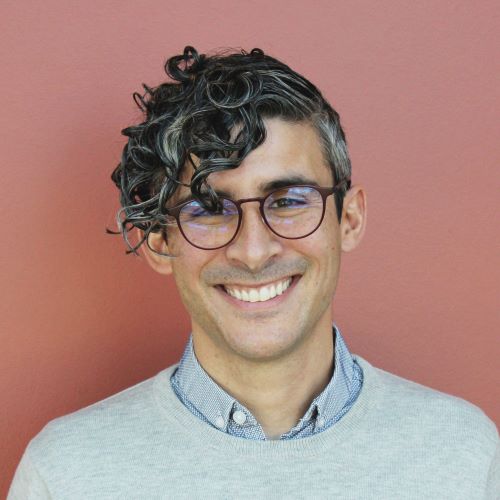 Ethan Hughes Ethan Hughes
Ethan G. Hughes is an Associate Professor in the Cell and Developmental Biology Department at the University of Colorado School of Medicine. He leads a laboratory focused on understanding how neuron-glial interactions modulate brain function and contribute to pathology in neurodegenerative disease. Dr. Hughes obtained his B.S. degree in Biology with Special Honors from George Washington University (2003). He completed his Ph.D. in the laboratory at the University of Pennsylvania (2009) trained as a postdoctoral fellow at Johns Hopkins University. In 2016, Dr. Hughes joined the faculty at the University of Colorado School of Medicine and was promoted to Associate Professor with tenure in 2022. He is an awardee of the Whitehall Foundation Fellowship, Marilyn Hilton Award for Innovation in MS Research, Webb-Waring Biomedical Research Award, and a ACTRIMS Young Investigator Award. Dr. Hughes has been a member of ASN since 2016. In a leadership role at ASN, Dr. Hughes would continue to emphasize on focus on Young Investigators through awards, networking, and leadership opportunities within the society. Moreover, Dr. Hughes would continue to build and strengthen diversity, equity, and inclusion within the society as a community of diverse perspectives, experiences, and backgrounds will be essential to attain the innovations and advances of the future in neurochemistry.
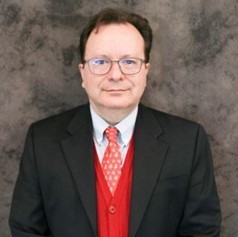 Joey Scafidi Joey Scafidi
Dr. Joseph Scafidi is a clinician scientist and Associate Professor of Neurology and Pediatrics at Kennedy Krieger Institute and Johns Hopkins School of Medicine. He attended undergraduate and graduate school at New York University, followed by medical school at Philadelphia Coll of Osteopathic Medicine. His completed pediatric residency at Rutgers University in Newark, NJ, followed by training in neurology and neonatal neurology at Children’s National Medical Center in Washington, DC. Dr. Scafidi did additional postdoctoral training in developmental neurobiology in the laboratory of Dr Vittorio Gallo at Children’s National Medical Center, where he remained as faculty until 2021 when he moved his research program to Kennedy Krieger Institute and Johns Hopkins SOM. Dr. Scafidi directs the Michael V. Johnston Center for Developmental Neuroscience and is an integral part of the Biochemical Genetics and Peroxisomal Diseases Laboratory at Kennedy Krieger Institute.
Dr. Scafidi’s continuously NIH-funded research program is interested in understanding metabolic adaptations after perinatal brain injury in the acute and long-term recovery phases. Specifically, his laboratory aims to understand how different cell populations in specific brain regions utilize energy after injury, and how these metabolic adaptations affect the recovery process. His laboratory uses an integrated, multidisciplinary approach that include molecular biology and genetics, cellular neurobiology, biochemical assays, functional mitochondrial measurements, metabolic phenotyping, MR imaging, 13C,1H-Nuclear Magnetic Resonance Spectroscopy, and a wide range of neurobehavioral testing. Dr. Scafidi’s research program is in line with his clinical practice – caring for children and adults with neonatal brain injury. Dr. Scafidi has been an active member of the American Society for Neurochemistry since 2005 and has attended nearly all meetings since becoming a member. He has participated in abstract review and poster judging for the ASN meetings. As council member, Dr. Scafidi will promote the field of neurochemistry in the context of developmental neurobiology.
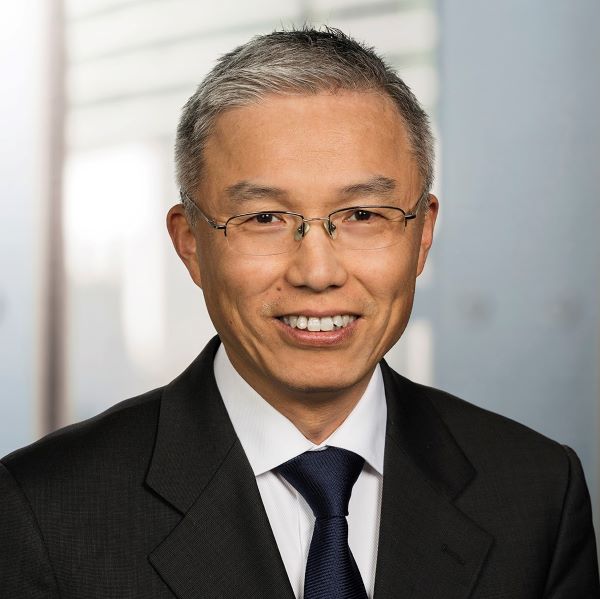 Jun Li, MD, PhD, FANA, FAAN Jun Li, MD, PhD, FANA, FAAN
Dr. Jun Li serves as chair of the Stanley H. Appel Department of Neurology at the Houston Methodist Hospital. Most recently, Dr. Li served as the Chairman of the Department of Neurology, the Scientific Director of Translational Neuroscience Initiatives at Wayne State University (WSU), and the Specialist-in-Chief of Neurology at the Detroit Medical Center. He is a member of the American Neurological Association Board of Directors.
Dr. Li spent nine years of his junior faculty career at WSU, and another nine years at Vanderbilt University, before taking on the chairman position at WSU; then joined Houston Methodist on June 1, 2022.
Dr. Li received his medical degree from Anhui Medical University in China in 1985. He received his doctoral degree in Neurosciences in 1995 from the Drexel University College of Medicine (formerly Hahnemann University). He completed a Neurology residency in 1999 at the Ohio State University; and an EMG/Neuromuscular Fellowship in 2000 in the Department of Neurology at the University of Utah.
Dr. Li subspecializes in peripheral nerve diseases and myelin biology. His laboratory has been continuously funded by the National Institutes of Health (NIH) since 2004. He has published more than 90 articles in peer-reviewed journals and book chapters. These contributions earned him a Wolfe Research Prize from the American Neurological Association in 2014.
Dr. Li joined ASN in 2017 and has actively engaged in the neurochemistry society. He has served on the editorial board of ASN Neuro since 2020. He has organized multiple sessions during annual ASN meetings. As a physician-scientist, he believes that he can make unique contributions to the neurochemistry society in translational perspectives.
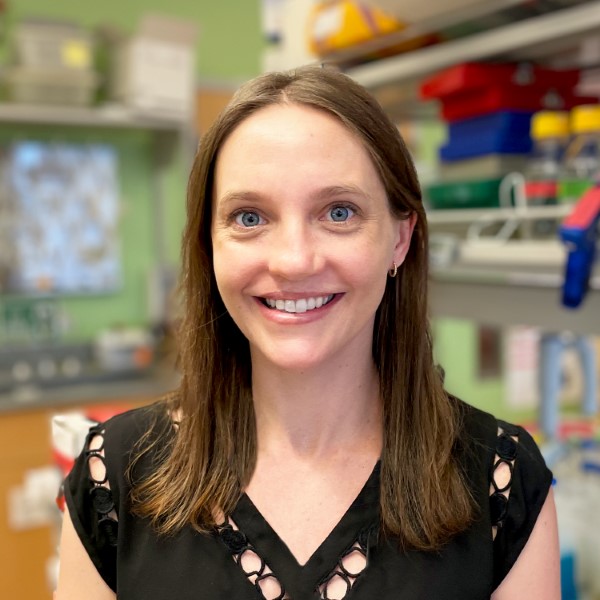  Katrina Adams, Ph.D. Katrina Adams, Ph.D.
Dr. Katrina Adams received her PhD in Molecular Biology from the University of California, Los Angeles where she studied motor neuron development using pluripotent stem cells. She then completed postdoctoral training at Children's National Hospital in Washington, DC in the laboratory of Dr. Vittorio Gallo, where she studied signaling pathways that regulate glial progenitor cells in the mammalian brain. Katrina has recently joined the Department of Biological Sciences at the University of Notre Dame in Indiana as an Assistant Professor, where her lab investigates how endogenous stem and progenitor cells of the central nervous system respond to injuries/disease, with a focus on Multiple Sclerosis. Katrina was first introduced to ASN during her postdoc, has been a member since 2018, and is very excited to contribute to ASN's rich scientific and inclusive environment.
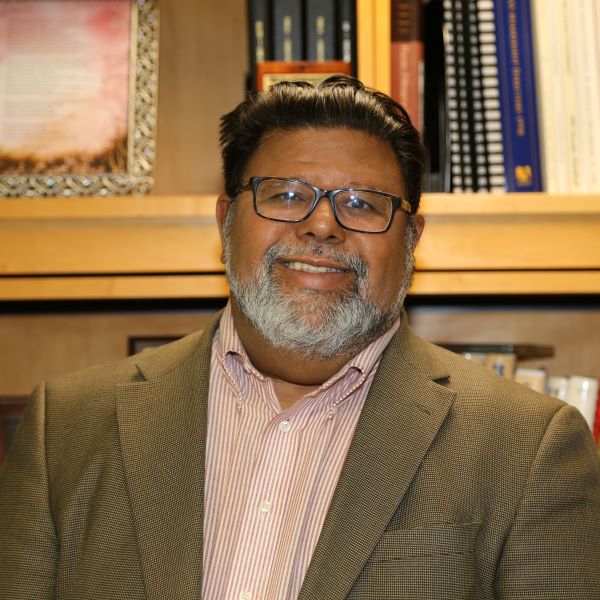 Marino De Leon, Ph.D. Marino De Leon, Ph.D.
I am full professor of Physiology and founding Director of the Center for Health Disparities and Molecular Medicine at Loma Linda University at Loma Linda University School of Medicine. My academic training includes obtaining my PhD in Physiology (neurophysiology) from UC Davis, postdoctoral fellowship at Stanford University in molecular neurobiology and working as staff fellow at NIDR, NIH. During my career I have focused on studying repair and regenerative mechanisms associated neuronal injury and axonal regeneration, and on developing training pipeline programs to address health inequalities and advance inclusion and diversity in the scientific workforce. For over 20 years I have been directing the Loma Linda University Health Disparities Research pipeline program that have provided research training and career development opportunities to hundreds of students from diverse grounds, many of which are currently serving in the biomedical field across the nation. Through the years my work has been recognized by several awards, including the Loma Linda University School of Medicine Distinguished Service award and the Loma Linda University Centennial Vanguard, and the University of Buffalo School of Medicine Celebration of Inclusiveness in Medicine and Science Lecture Series. Currently I am the new chair of the ASN Diversity and Committee. The ASN has been successful in advancing the field of neurochemistry and as a leader scientific organization has a tremendous opportunity to attract young investigators from all backgrounds to become the future leaders in the field. My vision is work with my colleagues in the ASN to be part of that vision.
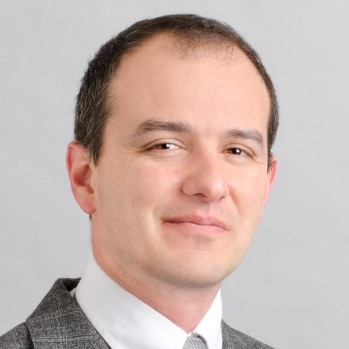 Pablo Paez, Ph.D. Pablo Paez, Ph.D.
Dr. Pablo Paez earned his Ph.D. in Pharmacology and Biochemistry at the University of Buenos Aires in 2005. Dr. JM Pasquini directed his doctoral research, which focused on the in vitro developmental cell biology of oligodendroglia. Dr. Paez joined Tony Campagnoni’s laboratory at UCLA in 2006 for continued postdoctoral training in the cell and molecular biology of oligodendroglia, focused on the determination of the role of the ubiquitous golli proteins encoded by the myelin basic protein gene. He was subsequently appointed to the position of Research Neuroscientist in the Department of Psychiatry at UCLA. In 2013, he joined the School of Medicine and Biomedical Sciences at the State University of New York at Buffalo, where he is presently an Associate Professor in the Department of Pharmacology and Toxicology. Paez’s current research focuses on understanding the function of ion channels in oligodendrocytes and astrocytes. His research has been instrumental in identifying ion channels that connect the electrical activity of neurons with the maturation of oligodendrocyte progenitor cells and the myelination process. He joined the American Society for Neurochemistry in 2002. Since then, he has presented more than 40 research posters and delivered 4 talks in various sessions. He is currently serving as a member of the Marian Kies Award Committee, and he has organized a symposium for the 2021 ASN annual meeting.
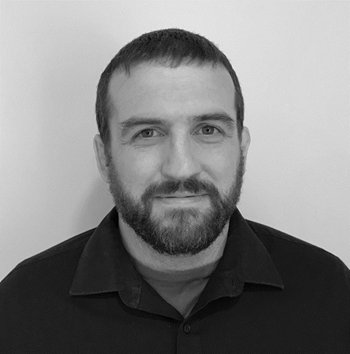 Randy Stout, Ph.D. Randy Stout, Ph.D.
Randy Stout, Ph.D., is an Associate Professor of Biomedical Sciences and Director of the NYITCOM Center for Biomedical Innovation and the NYIT Imaging Center. He has served on the ASN Membership Committee since 2018 and as Co-chair of that committee since 2019 to present. He serves as an ASN Council Alternate starting in 2022 and he served on the ASN conference program committee in 2020. Stout joined the ASN in 2016 after being a member of the ISN since 2013 for which he currently serves on the ISN Travel Award Committee. He uses microscopy, machine learning, and computational simulation to study gap junctions of astrocytes and other brain cell types. He also contributes to neuroscience education through his development of novel technologies such as custom neurochemical animations for his neuroscience lectures and molecule-to-brain virtual reality neuroanatomy training modules. He has co-authored a book, two book chapters, and several reviews on the topics of C. elegans glia, astrocytes, and gap junctions in glia. Stout holds a doctorate in Neurobiology from the University of Alabama Birmingham and an undegraduate degree in Biology from Cornell University. Stout has continuing collaborations with colleagues at Albert Einstein College of Medicine in Bronx, N.Y., where he did his postdoctoral training and research. His research is currently funded by a grant from the American Thyroid Association, collaboration on several NIH and NSF grants with other principle investigators, and through the Department of Biomedical Sciences at the NYIT College of Osteopathic Medicine. His lab is in Old Westbury, New York in Long Island.
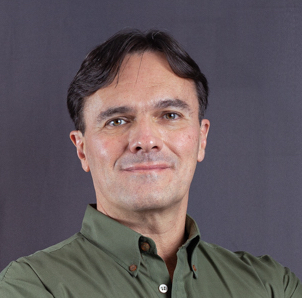 Sergio Ferreira Sergio Ferreira
I am Professor of Biophysics, Biochemistry, and Neuroscience at the Institutes of Biophysics and of Medical Biochemistry at the Federal University of Rio de Janeiro, in Brazil. I further serve as Director for Strategic Partnerships and International Relations at the D’Or Institute for Research and Education (IDOR), a leading non-profit research institute based in Brazil, and as Associate Director of the National Institute for Translational Neuroscience, linked to the Ministry for Science, Technology and Innovation of Brazil. Following about 10 years working as a PI on protein physical chemistry, the focus of my research gradually shifted to the neurobiology of dementia. Since 2001, I have investigated molecular and cellular mechanisms involved in synapse damage and dysfunction leading to memory impairments in Alzheimer’s disease. Our research has been published in journals such as Nature Medicine, Nature Communications, Nature Reviews in Neuroscience, Molecular Psychiatry, Molecular Therapy, Cell Metabolism, Cell Reports, EMBO Molecular Medicine, PNAS, Science Signaling, Science Translational Medicine, J Neuroscience, J Biological Chemistry, Translational Psychiatry, J Neurochemistry, and others. I have supervised 54 PhD thesis and MSc dissertations, and 26 postdocs, many of whom now occupy academic faculty or biotech positions in Brazil, USA, Canada, Argentina and Chile. I have always been involved in scientific societies and associations, both in Brazil and internationally. I was Secretary General and Vice-President of the Brazilian Biophysical Society (1998-2002), member of the Council of the Brazilian Society for Biochemistry and Molecular Biology (1997-2001), member of the Conferences Committee of the International Society for Neurochemistry (ISN, 2017-2019), and member of the Board of the General Assembly of the International Union for Physiological Sciences (2017-2018), member of the Committee on Symposia of the International Union for Biochemistry and Molecular Biology (IUBMB, 2006-2012). I also served as Vice-Chairman, Chairman and Past-Chairman of the Pan American Association for Biochemistry and Molecular Biology (PABMB, 2003-2013). Currently, I Chair the Scientific Program Committee of the Alzheimer’s Association International Conference (AAIC) and further act as Theme Lead for Basic Science and Pathogenesis (2019-present). Based on my experience in these scientific bodies, I am convinced of the benefit of international collaboration and partnerships to foster the development of frontier science. In particular, I have been able to steer and participate in initiatives aimed at increasing gender and geographical balance in the actions of international and national societies. If elected to the ASN Council, I hope to contribute to its role as a leading Neurochemistry society in the Americas, promoting a necessary and much desirable integration between the ASN and related societies in Canada and in Latin America.
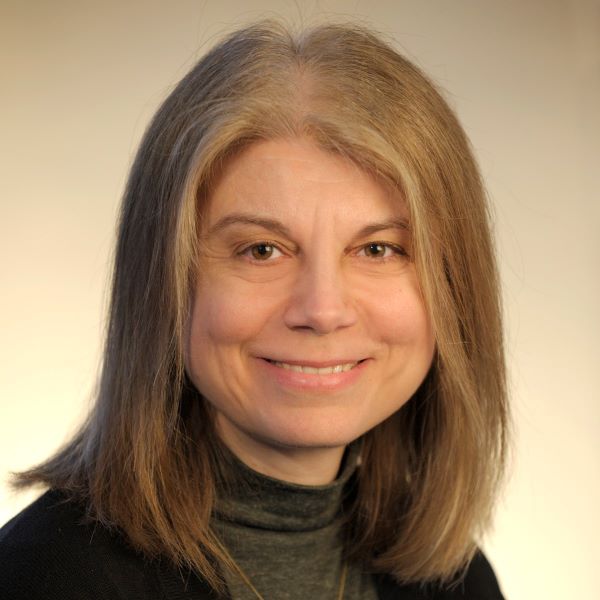 Stefka Spassieva Stefka Spassieva
I am Stefka Spassieva, an Assistant Professor in the Department of Physiology at the University of Kentucky. My research is focused on studying the function of sphingolipids in neurodegeneration and chemotherapy-induced peripheral neuropathy. I joined the ASN in 2014 and since then regularly attend ASN meetings and present the research from my laboratory. I organized two symposia focused on the function of lipids in the nervous system. The first, titled ‘Frontiers of Neurolipids’ I organized together with Dr. Glyn Dawson at the 46th ASN meeting in Atlanta, GA. The second symposium, titled ‘Neuropathy - challenges and new targets’ was organized at the 49th Annual Meeting in Riverside, CA. I am a member of the Host committee for the 2023 ASN meeting in Lexington, KY and together with Dr. John Gensel a co-chair of the local symposia ‘Healing, pain and the opioid crisis’. I enjoy the collegial atmosphere of the ASN. If elected a councilor for the society I will work to maintain its excellent record as a forum which fosters collaborations and supports the community of neurochemistry researchers in the Americas.
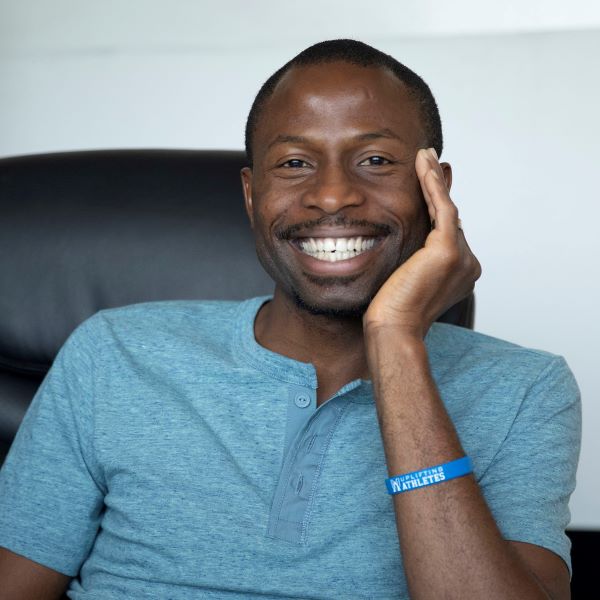 Ukpong Eyo, Ph.D. Ukpong Eyo, Ph.D.
"Eyo (pronounced “A”-“Yo”) was born in Nigeria and immigrated to the US in 2003 to pursue undergraduate studies at Northwest Missouri State University. He then went on to graduate school at the University of Iowa where he developed a keen interest in real-time imaging of microglia during development under the mentorship of Dr. Michael Dailey. Following his Ph.D studies, Eyo joined the lab of Dr. Long-Jun Wu, first at Rutgers University in New Jersey, then at Mayo Clinic in Minnesota to study microglial-neuronal communications. In August 2018, Dr. Eyo started his independent lab in the Department of Neuroscience and the Center for Brain Immunology and Glia (BIG) to continue his research on microglia in (i) neural injury (especially seizure disorders); (ii) neurovascular interactions and function and (iii) sex differences. Away from the lab, Dr. Eyo enjoys time with his blessed family including his wife, two sons, and two daughters”
I attended my first ASN meeting as a senior graduate student in the St. Louis 2011 edition. It was nerve wracking to be at my first conference but I found it great because there was an interest in glia which I found few places were interested in at the time. I attended again the last year in 2022 in Roanoke as a PI and it was such a delightful conference with again a strong glia focus, much opportunity for interaction, and a high quality of speakers and talks. Members of the leadership community at ASN exhibit qualities of excellent in research as well as scientific role models in culture.
| |
How To VoteInstructions and links for voting will be emailed directly to members in good standing, eligible to vote on January 4, 2023. If you did not receive your email or need assistance please contact Leya Duigu at asnmanager@asneurochem.org.
Election ResultsWill be announced at the Business Meeting on Wednesday, March 22, 2023 at the Hyatt Regency Hotel in Lexington, Kentucky, USA.
|
 Sergio Ferreira
Sergio Ferreira Stefka Spassieva
Stefka Spassieva Ukpong Eyo, Ph.D.
Ukpong Eyo, Ph.D.


 Joshua Burda, Ph.D.
Joshua Burda, Ph.D. Ranjan Dutta
Ranjan Dutta


 Elena Blanco-Suarez, Ph.D.
Elena Blanco-Suarez, Ph.D. Ethan Hughes
Ethan Hughes Joey Scafidi
Joey Scafidi Jun Li, MD, PhD, FANA, FAAN
Jun Li, MD, PhD, FANA, FAAN
 Katrina Adams, Ph.D.
Katrina Adams, Ph.D. Marino De Leon, Ph.D.
Marino De Leon, Ph.D. Pablo Paez, Ph.D.
Pablo Paez, Ph.D. Randy Stout, Ph.D.
Randy Stout, Ph.D.